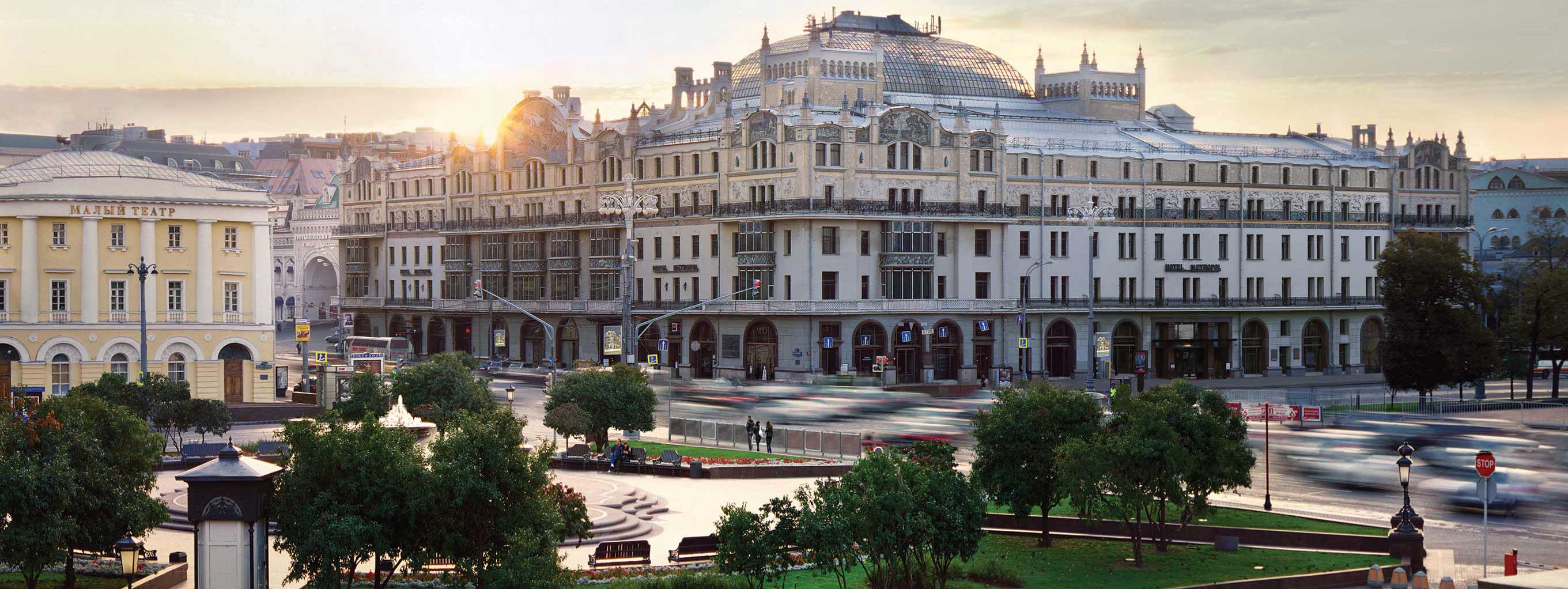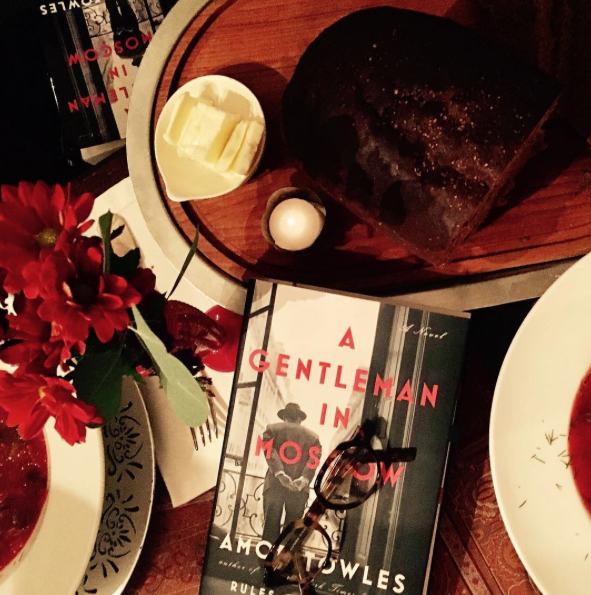This month, the book we’re all talking about is A Gentleman in Moscow. The elegant tale, penned by Amor Towles, chronicles four decades in the life of Count Alexander Rostov – an aristocrat who is sentenced to life imprisonment in Moscow’s Metropol Hotel by a Bolshevik tribunal in 1922.

Rostov is our guide to the revolution that churns Russian history, but with a vantage from the interior of one of the world’s grandest hotels. Guided by an erudite and kind narrator who chronicles the comings and goings of guests to the hotel, we focus on the shifting of class structure, the human foibles that persist as circumstances change, and a wistful and intellectual glimpse of the Russian character. Rostov, who had never worked a day in his life, discovers great satisfaction working in the hotel restaurant — for, who knows more about food and fine service? His friendships and affairs are ripped from storybooks, and his adventures with a carefree child will charm you. When the revolutionaries remove the labels from the hotel’s copious wine collection (so that all wines are equal, of course) Rostov can still discern the finest vintage. The image of a vast wine cellar without any labels on the bottles is the type of light commentary that Towles excels at – stylish, with glimpses of the profound.

No doubt his first career as an international investment banker honed the author’s love of fine dining and an intimate understanding of the logic of a luxury hotel. But his ability to climb into the heads of unique characters has made him a bestselling author. His first book, Rules of Civility, told a tale of New York in the twenties, through the eyes of of a female heroine. His ability to occupy the heart and mind of Count Rostov is more masterful, and richly rewarding. The novel is cinematic and romantic, owing a debt to Eloise, and also Wes Anderson’s The Grand Budapest Hotel. We recommend it highly.

We held our discussion of the book over dinner, with some Borscht and good Russian black bread. (We discovered a wonderful small bakery Tbilisi N Yerevan Bakery 7862 Santa Monica Boulevard, and also like Stolychnya.
Here are some links to help you with a discussion.
You can read the New York Times’ review of the book here. And to learn more about the author and his process, here is Amor Towles’ webpage, where he answers questions about the novel and his interest in Russia.
Here are some questions from LitLovers:
1. Start with the Count. How would you describe him? Do you find him an appealing, even memorable character?
2. In what way does his gilded cage, his “prison” for decades, transform Count Rostov? How do you see him changing during the course of the novel? What incidents have the most profound effect on him? Consider the incident with the beehive and the honey.
3. The Metropol serves literally and symbolically as a window on the world. What picture does Amor Towles paint of the Soviet Union—the brutality, its Kafka-esque bureaucracy, and the fear it inspires among its citizens? What are the pressures, for instance, faced by those who both live in and visit the Metropol? Does Towles’s dark portrait overwhelm the story’s narrative?
4. Talk about Nina, who even Towles considers the Eloise of the Metropol. Nina helps the Count unlock the hotel (again, literally and symbolically), revealing a much richer place than the it first seemed. What do we, along with the Count, discover?
5. What might Casablanca be the Count’s favorite film? What does it suggest about his situation?
6. Talk about the other characters, aside from Nina, who play an important part in this novel the handyman, the actress, his friend Mishka, and even Osip Glebnikov. Consider the incident with the honey.
7. The Count was imprisoned for writing the poem, “where is it now?”, which questioned the purpose of the new Soviet Union. Care to make any comparisons now with Russia under Putin, 70-some years later?

